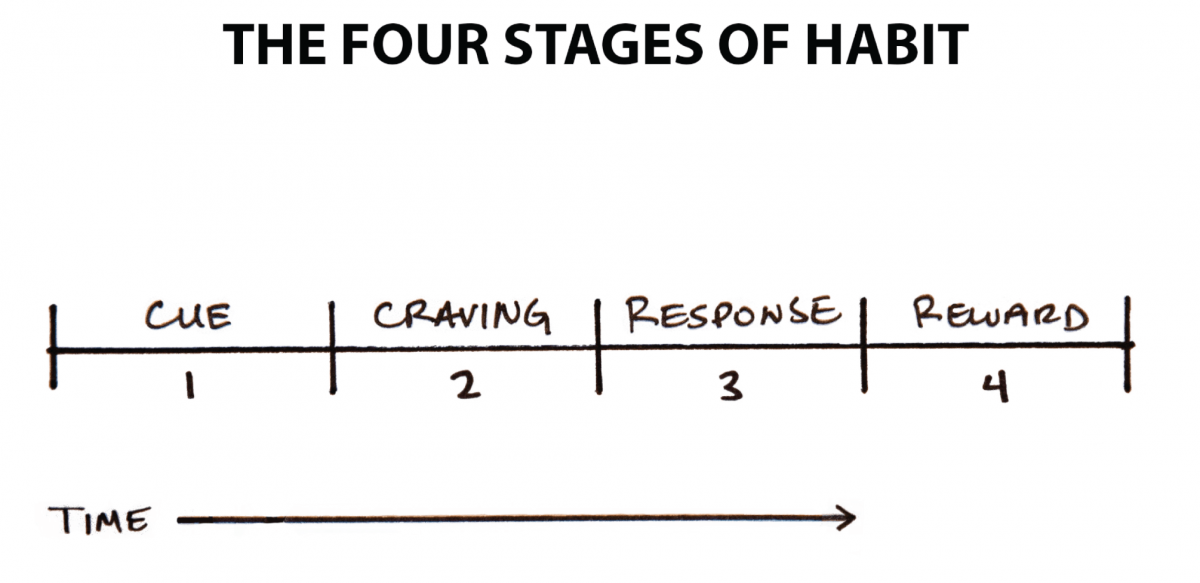Lifehack for Developing a New Habit: 11 Tips and Tricks
Written By: Jamie Petersen
Wouldn’t it be great if our daily tasks and responsibilities could run simply on autopilot? Imagine if your chores, work tasks, exercise routine, and eating healthy could happen automatically or at the touch of a button. While we wait for the next invention of robots, we need to program our behavior into a new habit. This will help ease your daily struggles because life is essentially the sum of your habits.
Think about yourself for a moment…
Are you in shape or out of shape? That is a result of your habits.
How successful are you in the workplace? That is a result of your habits.
Do you eat healthily and take the time to prepare foods that feed your mind and body? Also, a result of your habits.
What you repeatedly do every day is what ultimately forms the person you are and the daily routine you will have.
If you want to improve yourself or your day’s quality, you will need to learn how to form new habits. That is where we come in; we can provide you with a lifehack for habit formation.

The Science Behind Developing a New Habit
Firstly, what is a habit? A habit is a routine of behavior that is regularly repeated and often occurs subconsciously.
There is a science behind habit formation. The process of developing a habit can be divided into four stages, namely:
- Cue – The cue triggers your brain to initiate a behavioral response. A cue is the first sign that you are close to a reward and leads towards a craving for it.
- Craving – A craving is the motivational driving force behind every habit. If we do not crave the improvement we want, we will not act on it.
- Response – The response is the habit you develop. This can take the form of an action or a thought. A response will not occur if you are not motivated or do not crave the change. When responding to your craving the right way and developing a habit, you will receive the reward.
- Reward – The reward is the achievement of your goal. You have satisfied your craving by responding to it and can now benefit from your reward.

Image Source: jamesclear.com
The four stages develop every habit’s foundation, and our brains respond to each of these steps in the same order every time.
Remember that not all habits are good habits. Developing bad habits have the potential to impact your life negatively. Similarly, good habits have the potential to impact your life in a positive way. They can help lead us to a more successful life.
Two different habits can reduce stress after a hard day at work:
- Drinking alcohol
- Going to the gym
Both habits could help you relieve stress; however, one is a good habit, and the other is a bad habit. Drinking alcohol continuously is not only an unhealthy bad habit, but it will become increasingly difficult to break. Going to the gym daily is a good habit since it keeps your body fit and healthy and helps relieve stress naturally.
How Long Does it Take to Develop a New Habit?
Did you try to answer the question yourself? Think about it. How long does it take to develop a habit?
Did you answer 21 days? Most people will respond with that answer. It is because the idea dates back to “Psycho-Cybernetics,” a book published by Dr. Maxwell Maltz in 1960. While Maltz himself did not make the 21-day claim, he did reference the number as an observable metric for both himself and his patients. He noted:
These, and many other commonly observed phenomena, tend to show that it requires a minimum of about 21 days for an old mental image to dissolve and a new one to gel.
Some people may be able to develop a habit within 21 days, but in most cases, it can take anywhere between 18 and 254 days for a person to form a new habit or behavior. On average, it takes 66 days for a new behavior to become automatic.
Tips and Tricks to Develop Rewarding Habits
Let’s explore some tips and tricks to improve good habit formation that is rewarding to both you and your lifestyle.
Start Small
Rome wasn’t built in a day! Many people set out to achieve all their goals in one day, but this is not possible and may disappoint. It would be best if you started small. Do not go set yourself up to fix everything in a minimal amount of time; rather, make small, effective adjustments so that your mind can absorb the gradual positive changes correctly.
Stay Positive
A positive attitude will reap the rewards. If you want to develop good habits, then you need to stay optimistic. A positive mindset not only helps you overcome negative feelings, but it also helps you to handle stress better.
Commit to Your Goals
Commitment to your goal is a promise you make to yourself to achieve something. It is a dedication to give your energy and time to a specific task, positively and enthusiastically. Remaining committed for at least thirty days increases your chances of success. Sometimes staying committed may feel challenging as you overcome hurdles, but stay focused on your goal of developing good habits.
Analyze your Setbacks
Sometimes you may experience setbacks as you work towards developing good habits, but stay positive and do not let the challenges change your path towards success. It is often the case that it is not a good habit that is the challenge, but all the possible setbacks that you need to overcome to establish the goal.
Identify and analyze those possible setbacks, and be prepared to face them positively. Once you identify the challenges, it is easier to recognize the solution.
The Buddy System
Find a friend that will help keep you motivated as you set out to develop good habits. You may be lucky to share the same goal as you journey together to achieve good habits.
Develop a Trigger
A trigger is a daily ritual you use just before you execute your habit. For instance, if you want to quit smoking, then practice snapping your fingers every time you crave a cigarette.
Replace Lost Needs
If you are giving up something to help develop a good habit, then adequately replace any of those needs you have lost. If you quit smoking, then replace your need for a cigarette by eating a fruit or snacking on a vegetable.
Remove the Temptation
Before executing your goal of achieving a new habit, restructure your environment. Minimize anything that will temp you within the first thirty days. For those quitting junk food, you will need to remove all junk foods from your house.

But, it Works…
Use the word “but.” A common therapy tool for changing negative thought patterns is to use the word “but.” As soon as you start to think negative thoughts, interrupt yourself with the word. For instance, “I cannot do this, I am not strong enough, but if I keep working hard, I will become stronger.”
Breathe in…and Swish!
A popular technique from NLP is what is known as Swish. Take a moment for yourself and do the following:
- Visualize yourself performing the bad habit.
- Now change that vision to one of you pushing away the bad habit and replacing the action or thought with an alternative positive action or thought.
- Finally, imagine yourself in a highly positive state, enjoying the rewards of your new good habit.
Envision yourself picking up a cigarette, watch yourself putting it down and snapping your fingers, and then envision yourself jogging energetically and breathing freely.
Finally, Keep a Journal
Of course, we love this one! Keep a personal journal to document your journey towards developing good habits. Journaling in itself is considered a good habit because not only does it help you improve your communication skills to convey a message effectively, but it helps you document your wins and mistakes of your entire day.
A journal will help you look back at how you achieved your previous goals of implementing good habits. You can explore the mistakes you made and develop a strategy for future goals and minimize those errors’ re-occurrence. In addition, you can also analyze what you did successfully and use those notes as a guide for future reference.
You can use Emote for your journaling needs. Use Emote to set your goals and intentions and to build your new healthy habits. Sign up today and explore the amazing benefits of journaling with Emote.
